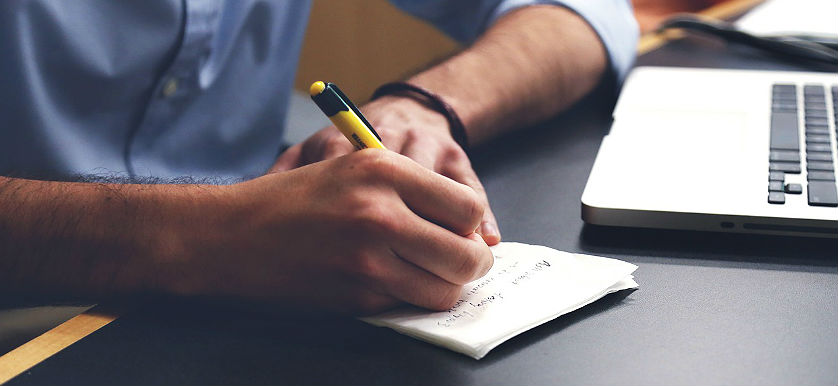Helpful hacks to boost your memory

When it comes to maximizing your performance – whether that be in the workplace, studying or pursuing a hobby, having a good memory is crucial. We have probably all found ourselves experiencing ‘brain fog’ at some point or another, when our mind goes blank and we can’t remember things we have learnt a short time ago.
This is because, like any muscle, the human brain needs exercise and careful conditioning in order to gain strength and stamina. These things are vital for optimum productivity at work, for which sound memory skills are also needed. Luckily, there are various tools and techniques you can use to keep your memory in great shape.
Make sleep a priority
It may come as a surprise to know that getting enough sleep is crucial when it comes to improving your memory. This is thanks to the physiological changes that occur during sleep.
Research has indicated that memory consolidation takes place while we sleep – that is, when the brain processes short term memories and converts them into long term ones. This process includes learning new skills.
Sleep helps us to retain what we have learned at work or in the classroom, for example. A lack of sleep – that is, less than 7 hours a night – does not allow enough time for this process to happen, resulting in brain fog and forgetfulness.
Given the influence of sleep on our memory, it is important to prioritize sleep on a daily basis. This includes making your bedtime routine and environment conducive to sleep. You can achieve this through simple steps such as avoiding sugar or caffeine in the evening, removing electronic devices and other stimuli when going to bed, and practicing relaxation techniques such as mindfulness.
Briefly, mindfulness is the art of being fully present in the moment.It can take a while to master, but can also be a very powerful tool when it comes to improving your memory. Work can of course be stressful at times, particularly when you are in a result-driven or highly responsible role. Mindfulness can equip you with the tools needed to calm your mind and fall asleep, helping you feel refreshed in the morning.
Give your brain a health kick through diet and exercise
Regular exercise and good nutrition don’t just improve your physical health; they have a significantly positive impact on your memory too. Recent studies have indicated the memory-boosting nature of the mediterranean diet, which is rich in fruit, vegetables, fish and whole grains. These all help promote healthy blood vessels and, in doing so, a healthy brain.
It therefore pays to stay away from too much caffeine and sugar to make yourself more alert, and opt instead for healthier, slow energy-releasing alternatives (such as bananas and nuts, for instance).
In conjunction with a healthy diet, researchers at the University of British Colombia have revealed the positive effect of cardiovascular exercise on the Hippocampus. This is the area of the brain associated with memory and learning. Regular exercise promotes the development of healthy brain cells, whilst also helping new blood cells develop.
This all contributes to improved cognitive ability, including memory retention. The types of exercise shown to help memory include walking, swimming and cycling.
Meanwhile, “getting some air” can be much more than just using an opportunity to clear your head. Research has shown the benefit of going for a brisk walk when studying, particularly when compared to sitting still.
When it comes to sitting exams, for example, students who have been on a short, moderately-paced walk before a revision session have been shown to have a significantly higher successful recall rate than those who haven’t. This could also prove an effective technique for employees when on a training course.

Repeat what you have learned aloud or in writing
Repetition can be very effective when it comes to retaining information. One popular technique that uses repetition is peer learning, which is used both in education and the workplace.
This method sees a student or employee learning off a classmate or colleague. It may sound like an act of laziness on the teacher’s or manager’s part, but is in fact a potentially very powerful teaching strategy that enables people to remember information and feel more confident about a topic. It also often makes it easier for people to understand something explained in terms explained by a peer.
Alternatively, consolidate your memory skills by reiterating to yourself what you’ve learned out loud. You might feel self-conscious but, in the right context, there is no need to.
Find a place with no distractions (a meeting room at work, for instance) and go through what you have learned aloud. Hearing your words, perhaps even recorded, will make it make it easier for the information to ‘stick’, and you will also feel more confident about the topic at hand. This is a particularly useful exercise when preparing for an end-of-course exam, or a work presentation.
A popular and equally effective way of sharpening your memory is to write things down. When it comes to typing information on a computer, research has shown a correlation between font style and information retention.
People remember a lot more information that is written in an unfamiliar font than that which is written in a more familiar, easy-to-read font. By making the brain work harder at reading, you are made to focus more, meaning that you will absorb more of the material you read.
Overall: commit to a memory-boosting routine
Having and maintaining a good memory requires daily self-care. It is, however, perfectly achievable with some simple lifestyle choices. Focus on the things that help keep your brain and body healthy: a balanced diet, regular exercise and sharing things that you have learnt, whether it be verbally or in written form.
Perhaps most importantly of all, though, be sure to allow enough time for a decent sleep each night. This means going to bed at a sensible time and with as few distractions as possible, in order to help you fall asleep, re-energize and consolidate valuable new memories.
Image sources:
Tags: Personal Development, Personal performance





